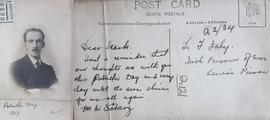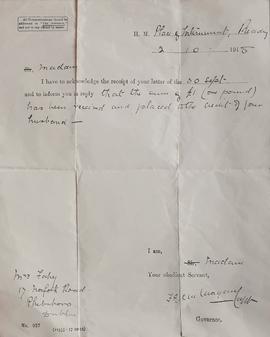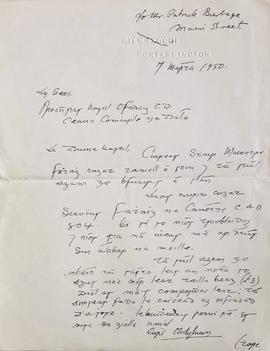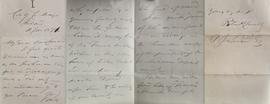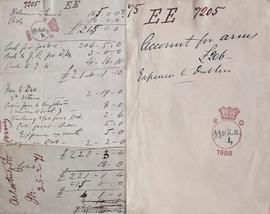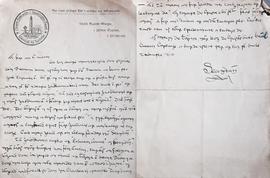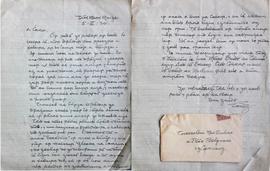The subseries comprises a small collection of papers relating to James Joseph O’Kelly, a Fenian, journalist, and nationalist politician. Born in Dublin in 1842, O’Kelly was sent to London at a very young age to learn sculpting from his uncle John Lawlor (c.1820-1901). His three brothers were artists, including the distinguished painter Aloysius O’Kelly (1853-c.1941). He was sworn into the Irish Republican Brotherhood in 1860 and joined the French Foreign Legion in 1863. He later distinguished himself as a journalist with the ‘New York Herald’. As the paper’s war correspondent, O’Kelly reported on the Cuban revolt against Spanish rule in 1873. Subsequently, O’Kelly accompanied the United States Army in its war against the Sioux and reported on the Battle of the Little Bighorn in 1876, otherwise known as ‘Custer’s Last Stand’. Upon his return to Ireland, O’Kelly became a staunch supporter of Charles Stewart Parnell and the Home Rule movement. He represented the Roscommon constituency in the House of Commons as an MP from 1880 to 1916. O’Kelly was central to what was called the ‘New Departure’ which bound together the forces of land agitation, Fenianism, and parliamentary politics in the 1870s and 1880s. He died in London on 22 December 1916.
The small collection of papers listed here relate to O’Kelly’s efforts to garner support for an Irish brigade to fight on the French side during the Franco-Prussian War (1870-71). Like almost all Irish Catholics O’Kelly supported the French during the conflict. The section includes letters from O’Kelly’s acquaintances and fellow nationalists, including John O’Mahony (1815-1877), the founder of the Fenian Brotherhood, Patrick James Smyth (1823-1885), a Home Rule MP, and John O’Connor Power (1846-1919). The file also includes a letter from Fr. Patrick Lavelle (1825-1886), a Mayo-born priest and nationalist agitator. Despite success in forming an Irish ambulance unit for the French army, the sudden fall of Paris and the French defeat at the end of January 1871 effectively ended O’Kelly’s project to raise an Irish brigade. In February 1871 O’Kelly went to America and embarked upon his journalistic career.
The documents listed below were found within an envelope annotated ‘Fenians’. However, it is unclear how (and from whom) Fr. Senan Moynihan OFM Cap. may have obtained O'Kelly's papers.

